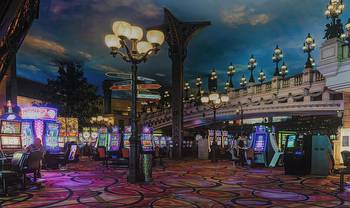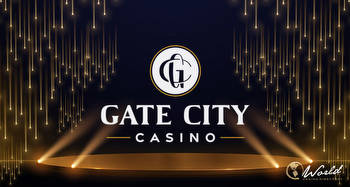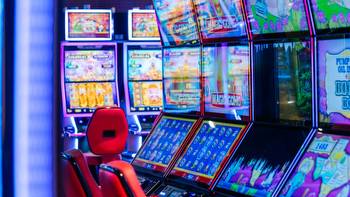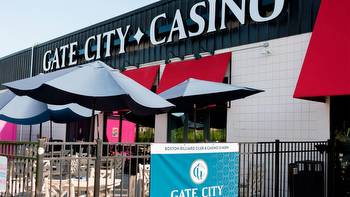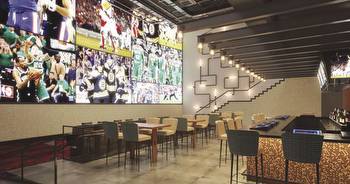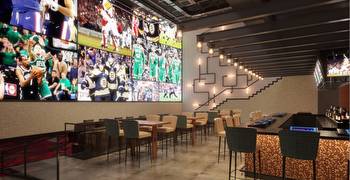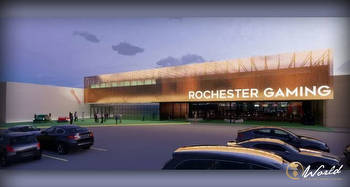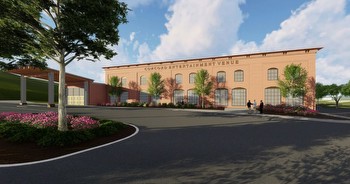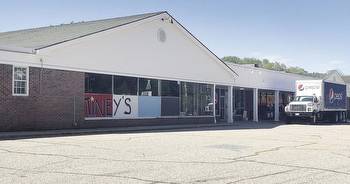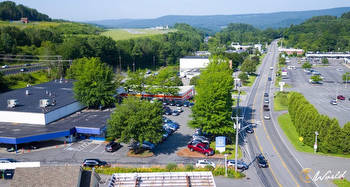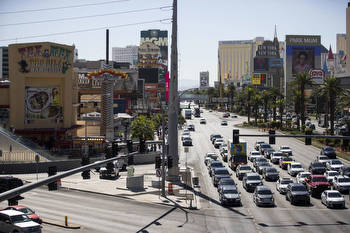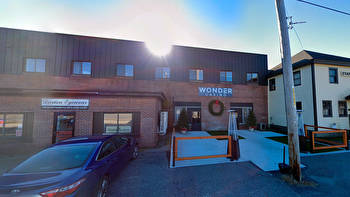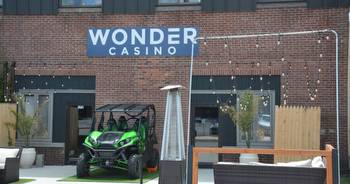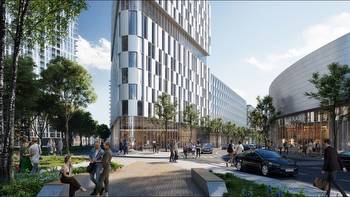Lebanon Planning Board approves casino permit
LEBANON — The city Planning Board has unanimously approved a permit for developers seeking to build a “charitable gaming” casino and restaurant on the Miracle Mile.
The Planning Board gave consent this week to owners of the Lebanon Poker Room to relocate their establishment at 45 Hanover St. to a larger location at 369 Miracle Mile, a former Honda dealership. The existing facility will be converted to create a 41-seat restaurant and bar and a casino with 111 electronic gaming machines and 13 gaming tables, according to a project description submitted to the city in December.
The meeting was a continuation of a public hearing on June 12, where a number of residents spoke in opposition to the casino, citing concerns about traffic, crime and safety and the appropriateness of gambling in general.
On Monday, Planning Board Chairman Matthew Hall reiterated that the board had little leeway to deny the applicants a permit because charitable gaming is an allowable use in that part of the city.
“I do know that something like a casino or gambling is a passion subject that people have strong feelings about one way or another,” Hall said. “But I do want to say, as a member of the Planning Board, that we don’t take into account things like it being a gambling institution. It’s really about whether the plan meets the city requirements that all applications have to meet to be permitted in certain types of zones.”
Under New Hampshire law, “charitable gaming” is a state-regulated category of gambling where 35% of the proceeds must be donated to charitable nonprofits. In New Hampshire, charitable gaming can include poker, bingo and casino games such as roulette and blackjack.
In June Republican Gov. Chris Sununu signed a new bill into law that allows people to spend up to $50 per individual wager in games of chance, such as poker, roulette and blackjack — an increase from the previous maximum of $10.
The Planning Board continued the hearing to Monday to seek feedback from the Lebanon Police Department about the casino’s security plan and public safety.
At the June 12 meeting, residents had noted four police calls this year to the Hanover Street location, including about an alleged motor theft on April 2 and an alleged assault on April 16.
According to a police report submitted to the Planning Board, the police responded 19 times to the Poker Room between 2020 and June 2023. Four of the calls were for medical concerns, which were not specified in the report, and another four were to investigate a triggered burglar or panic alarm.
Casino developer Stefan Huba noted that many of the incidents that occur, such as unruliness or wellness concerns, are alcohol-related, which the Poker Room currently has limited ability to control. The bar is owned by Village Pizza, a separately owned restaurant that shares the building space with the casino and that serves casino patrons.
Dick Anagnost, co-owner of the Lebanon Poker Room, told the Planning Board last month that the primary intent of the expansion is to add food and beverage services, which would enable the casino to significantly increase its revenue.
Deputy Police Chief Matthew Isham, who attended Monday’s meeting, told the Planning Board that the casino expansion would not result in a strain on police services.
Anagnost said the casino’s security staff will handle most behavioral issues in the facility and that the police are only contacted when an individual is breaking the law or if a patron’s behavior poses an threat to others, such as attempting to operate a vehicle while intoxicated.
“If we can use our internal staff to deescalate, then that’s what we will do,” Anagnost told the board. “And we will also ask people to leave respectfully. But if someone gets out of control, then it would be a call, just like any regular business in the city, to the police for assistance.”
Isham said that the police department had reviewed the proposed casino security plan and found it satisfactory. In addition, the department’s main concerns about traffic were addressed at the June 12 meeting.
Last month Jeffrey Dirk, a traffic engineer from the consulting firm Vanasse and Associates, of Andover, Mass., told the Planning Board that the project would not have a significant traffic impact. Dirk stressed that the charitable casino’s peak hour is 8 p.m., when other traffic volume on the Miracle Mile has subsided.
A traffic study conducted by Dirk stated that the casino would result in a maximum of 75 additional vehicles on the road during the casino’s peak hours, resulting in less than a 5-second traffic delay.
Last month, the Planning Board had also approved a conditional use to allow the developers to lease six casino parking spaces at 351 Miracle Mile, a Harley-Davidson dealership that abuts the property. The additional spaces were needed to meet the city’s minimum parking space requirement for the new facility.








